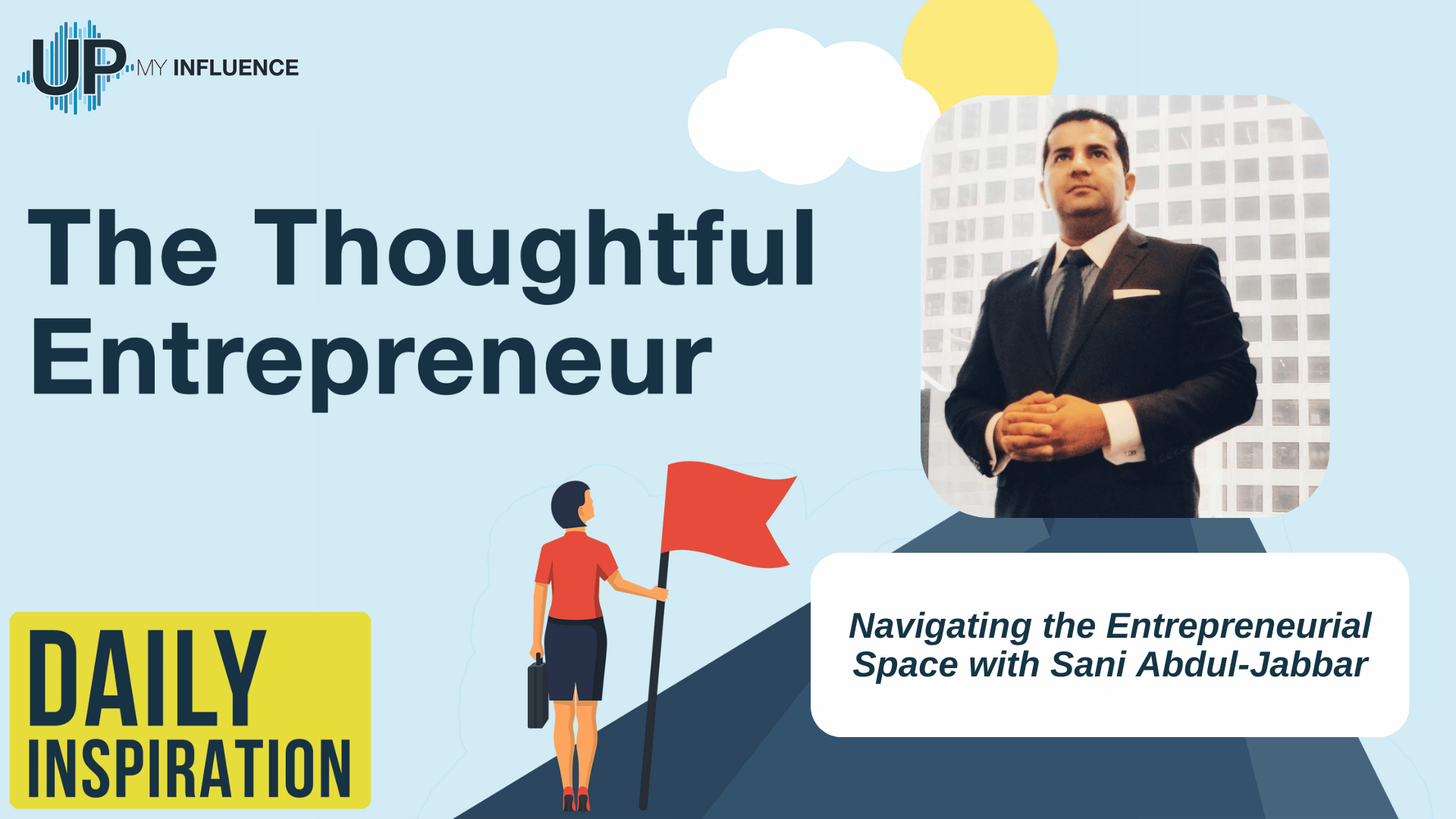THE THOUGHTFUL ENTREPRENEUR PODCAST
In this episode of the Thoughtful Entrepreneur, your host Josh Elledge speaks to the Founder and CEO of Veztek USA, Sani Abdul-Jabbar.

Sani Abdul-Jabbar, the founder and CEO of VezTek USA, shared insights into his entrepreneurial journey and the principles guiding his leadership. Sani's experience is particularly instructive for aspiring entrepreneurs, demonstrating the potential of innovation, dedication, and strategic thinking in business success.
He discussed the critical roles of resilience and adaptability in his ascent in the tech industry, highlighting these traits as essential for navigating the challenges of entrepreneurship. Sani's approach transforms obstacles into opportunities, providing valuable lessons for others.
Innovation is central to VezTek USA. Sani explained how his company remains at the forefront of technology, pushing boundaries and fostering a culture of innovation among his team. This commitment to continual improvement is a cornerstone of their success.
Key Points from the Episode:
- Entrepreneurship
- Business strategies
- Innovation in technology
- Success stories
- Industry insights
- Leadership and management advice
About Sani Abdul-Jabbar:
Sani Abdul-Jabbar stands at the forefront of technological innovation as the Founder and CEO of VezTek, a Los Angeles-based tech consultancy. Under his leadership, VezTek has become a beacon for businesses seeking expert guidance and on-demand technology teams. The company prides itself on specializing in groundbreaking technologies such as artificial intelligence and blockchain, aiming to revolutionize how these tools are integrated into business solutions.
In addition to his entrepreneurial ventures, Sani has made significant contributions to the literary world with his best-selling book, ‘Makers.' Available on major platforms like Amazon and Barnes & Noble, ‘Makers delves into the critical importance of embedding human values within AI technology. Through his writings, Sani advocates for a future where humans and machines coexist harmoniously, emphasizing the need for mindful development in the tech sector. His two decades of experience have shaped his vision and influenced the broader conversation on technology's ethical integration into society.
About VezTek USA:
VezTek stands out as an award-winning consultancy specializing in innovation and providing on-demand talent within emerging technologies such as Blockchain and the Metaverse. By integrating skilled tech talent with established brands, forward-thinking entrepreneurs, and dynamic scale-ups, VezTek plays a pivotal role in shaping the future of these sectors. The company's unique approach ensures that it not only understands the technological landscape but also expertly navigates it to meet the specific needs of its clients.
At the heart of VezTek's mission is transforming innovative ideas into tangible realities across diverse industries, including DeFi, DAOs, FinTech, Healthcare, and more. Through strategically locating new technologies, innovating products atop these platforms, equipping clients with dedicated teams, and scaling product delivery to enhance consumer adoption, VezTek has mastered the art of turning visions into successful, market-ready solutions. This comprehensive strategy underscores VezTek's commitment to excellence and significant contribution to technological advancement and innovation.
Tweetable Moments:
05:14 – “Fear is the hurdle. The difference between 78 to 80% of the leaders saying that we're not going to exist in ten years if we don't use AI, and only 4% actually significantly investing in it, is fear.”
Links Mentioned in this Episode:
Want to learn more? Check out VezTek USA’s website at
Check out VezTek USA on LinkedIn at
https://www.linkedin.com/company/veztekusa/
Check out VezTek USA on Facebook at
https://www.facebook.com/veztekusa
Check out VezTek USA on Twitter at
https://twitter.com/veztekusa?lang=en
Check out Sani Abdul-Jabbar on LinkedIn at
https://www.linkedin.com/in/sani/
Check out Sani Abdul-Jabbar’s book “Makers: A Slender Knowledge” at
More from UpMyInfluence:
We are actively booking guests for our The Thoughtful Entrepreneur. Schedule HERE.
Are you a 6-figure consultant? I’ve got high-level intros for you. Learn more here.
What is your #1 Lead Generation BLOCKER? Take my free quiz here.
Want to learn more about all the podcasts managed by UpMyInfluence? Opt in here.

